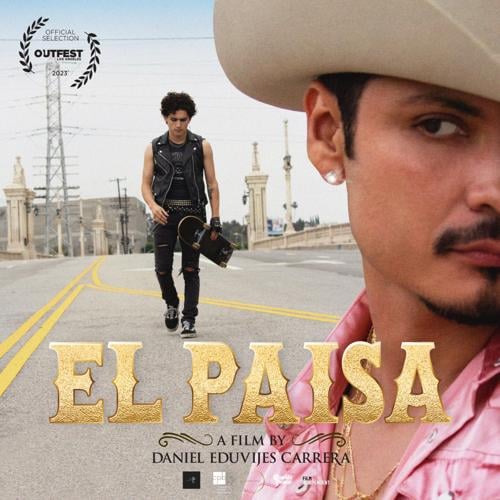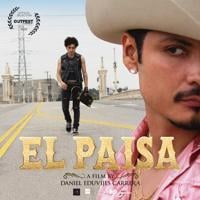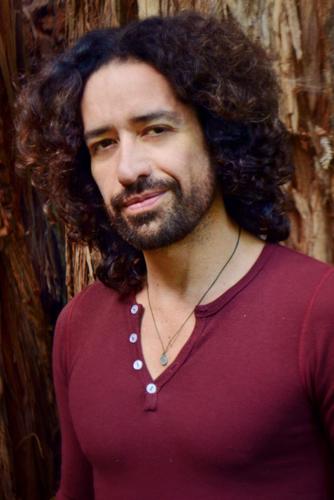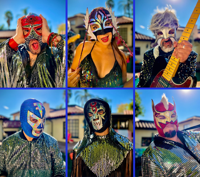
Paisa – short for paisano – is a term of endearment for some people from the same country, and a negative identifier for others.
To Daniel Eduvijes Carrera, the term paisa, or paisano, is a way to identify the people in his life that come from the same or similar backgrounds.
His short film, “El Paisa,” was chosen for the Emerging Filmmakers Showcase at Cannes Film Festival in France, where it was awarded best short film. It follows wins at local film festivals in Los Angeles and a world premiere at Outfest Film Festival.
“When I was fundraising and casting for the film, I found that a lot of people did not want to be associated with a title that could have that pejorative term,” said Carrera. “The point of making this film is to celebrate the term because we’re all paisanos.”
Carrera recalls the struggle to cast people for the film.
“One actor came up to me and was like, ‘You know, that’s a really bad word in East Los, right?’”
“That’s the point,” said Carrera during the interview with CALÓ News.
Though there are various connotations of paisano, it’s often used as a term for a compatriot who shares the same place of origin. Carrera strives to bridge the divide between the terms' connotations and uses the title of the film to draw in the cultures represented in the film.
Closeted young love is a culturally universal theme explored in “El Paisa,” a short film directed by a first-generation, former punk kid who grew up in Riverside.
As one of nine children, Carrera says he learned English from his siblings and from watching TV shows. Most of his siblings were immigrants as were his parents, who taught Carrera to combine his culture into his identity.
Many people across cultures, including Carrera, struggle to embrace their queer identity because cultural expectations and gendered roles are often deeply tied to misogynism.
According to a National Institute of Health published report, “The mental health difficulties experienced by many gay and bisexual Latino men in the United States are directly related to a social context of oppression that leads to social alienation, low self-esteem, and symptoms of psychological distress.”
The social context of oppression is the overarching theme in this film.
Fernando, the main protagonist of the film, is only 18 years old and has to learn to live as the support system for his mother, while struggling to find and to embrace his own identities. He deals with an abusive partner who is a closeted cholo, joining in on beating Fernando for being on their turf, which happens to be where Fernando lives.
“When I do the Q and A’s for ‘El Paisa,’ I talk about how [this film] is not just about coming out as queer, but also coming out as a proud child of immigrant parents,” said Carrera.
When Carrera was little growing up in Southern California as a son of immigrants, he struggled to embrace his cultura and his identity.. Carrera never imagined that this struggle could be universally understood.
“I’ve never seen these different communities represented under a queer perspective,” said Carrera. He asked himself: What does it mean to be a queer vaquero? What does it mean to be a queer, rocker, kid? What does it mean to be a queer cholo?
“As I was writing the script, I kind of found it becoming not just a celebration of all of the diversity within the queer Latino identity, but also a celebration of the one person we knew was never going to abandon us. Our madrecita,” said Carrera.
He says he feels fortunate that his mother embraced his queer identity when Carrera came out to her.

The film touches on topics of immigration, family dynamics, teenage angst and queer identity, also allowing space for the realistic confrontations of domestic violence in intimate partner relationships.
Fernando, played by Cristian Urbina, struggles with the guilt of being queer and figuring out his place on the streets of East Los Angeles.
The stern vaquero that saves Fernando from getting beat up in the film shows him that there is an intersection between queerness and his Latino identity. Fernando sees Carmelo, the vaquero played by David Ty Reza, enter a gay club playing original cumbias by Ricky Garay and Silas Hite of Los Tigres del Acordeón.
When Carmelo catches Fernando lurking in, he makes it a point to welcome him into the community and assures him that it’s a safe place to embrace his identity the way that everyone at the club was doing.
He coaches young Fernando about how there is more to his life than being with a partner who refuses to accept his queer identity and instead chooses violence as an outlet for his internalized homophobia.
Since the debut at Outfest Film Festival last fall, the film has gone on to receive multiple awards across other local film festivals. The film won the Audience Award at the Long Beach QFilms Festival, both Jury and Audience Awards at the Highland Park Independent Film Festival, Best Short at the East Los Angeles Film Festival and Jury Award at the South Central Film Festival.
After its European premiere at the Cannes Film Festival, “El Paisa” will head to Mexico City and then be available online and on TV through the Latino Public Broadcast and Public Broadcast Service.
“It’s just the beginning for this film in many ways,” said Carrera.













(0) comments
Welcome to the discussion.
Log In
Keep it Clean. Please avoid obscene, vulgar, lewd, racist or sexually-oriented language.
PLEASE TURN OFF YOUR CAPS LOCK.
Don't Threaten. Threats of harming another person will not be tolerated.
Be Truthful. Don't knowingly lie about anyone or anything.
Be Nice. No racism, sexism or any sort of -ism that is degrading to another person.
Be Proactive. Use the 'Report' link on each comment to let us know of abusive posts.
Share with Us. We'd love to hear eyewitness accounts, the history behind an article.